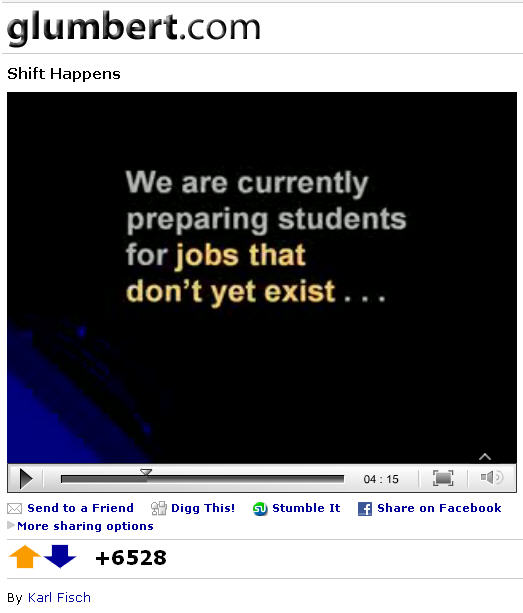
About Vance |
CALL resources main page
& Site Index |
Vance's papers and
presentations
Back to the home page of this
presentation | View some additional
references?
The following is adapted from the conclusion of: Dieu, Barbara, and Vance Stevens. (2007), Pedagogical affordances of syndication, aggregation, and mash-up of content on the Web. TESL-EJ, Volume 11, Number 1: http://tesl-ej.org/ej41/int.html, where we said:
Though different in scope, the Dekita and Writingmatrix projects are similar in that they are two examples of what is possible when we are aware of and can exploit syndication, aggregation, and mashup of content in distributed learning environments over the Internet. In order to maintain such awareness, it is important that education practitioners keep themselves current with not only the eclectic range of tools that are available to them now on the Internet, but with the concepts underlying their appropriate use.
These concepts necessitate real paradigm shifts and adjustments in thinking for contemporary teaching professionals, from push to pull mind sets, and from reliance on print literacy to an awareness of multiliteracies (Stevens, 2006) and transliteracy <http://en.wikipedia.org/wiki/Transliteracy> and <http://www.hum.dmu.ac.uk/blogs/part/2007/06/post.html#more>. Although the print literature on the transformational effects of blogging on students and learning is scant, there is a preponderance of anecdotal evidence in what might be called the 'multiliterature' of not only blogs but podcasts and YouTube and TeacherTube <http://www.teachertube.com/> videos regarding some of these impacts. Teachers who have reconciled these tensions are more likely to prepare their students for a future where, as it is said, many jobs have not yet been invented.

| From Shift Happens:
http://www.glumbert.com/media/shift
We are currently preparing students for jobs that don't yet exist. Using technologies that haven’t yet been invented |
I close with two samples of anecdotal evidence, one a remark from the presentation given by Konrad Glogowski and Christopher Sessums at WiAOC 2007 to the effect that student teachers were using technology with online acquaintences in their after-hours social networking, but not carrying this over into their professional, teaching practices (audio forthcoming). And the second is a suggestion by Kathy Clesson that teachers who use technology with their students do indeed render those students more amenable to integrating technology into they way that they pursue their own lifelong learning (from Toledo, 2007):
I hope to find time to improve this conclusion and also to find the audio segment where Glowgowski and Sessums mention the 'kicker'
Further practice
More things you can do to expand your knowledge of these concepts.
References
Fisch, Karl. (2006). Shift Happens. Retrieved August 20, 2007 from: http://www.glumbert.com/media/shift
Glogowski, Konrad and Christopher Sessums. Personal Learning Environments - Exploring Professional Development in a Networked World. Presentation at WiAOC 2007, Webheads in Action Online Convergence. Retrieved August 20, 2007 from: http://www.webheadsinaction.org/node/168. Recorded in two parts at http://streamarchives.net/.
Stevens, Vance. (2006). Revisiting multiliteracies in collaborative learning environments: Impact on teacher professional development. TESL-EJ, Volume 10, Number 2: http://www.tesl-ej.org/ej38/int.html
Toledo, Cheri. (2007). The Future of Teacher Education: Herding Cats and Chasing Targets. Presentation given at the Future of Education online conference. Retrieved August 20, 2007 from: http://ltc.umanitoba.ca/foe-2007/Cheri_Toledo/
Back to the home page of this presentation | View the References?
For comments, suggestions, or further information on this page, contact Vance Stevens, page webmaster.
Copyright 2007 by Vance Stevens
under
Creative Commons License:
http://creativecommons.org/licenses/by-nc-sa/2.5/